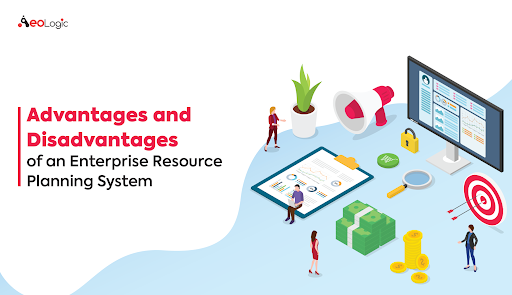Advantages and Disadvantages of ERP

Enterprise Resource Planning (ERP) systems are integrated software solutions that organizations use to manage and streamline their business processes. While ERP systems offer several advantages, they also come with certain disadvantages. Here's an overview:
Advantages of ERP:
-
Improved Efficiency:
- Pros: ERP systems integrate various business processes, eliminating the need for manual data entry and reducing the duplication of tasks. This leads to increased efficiency and productivity.
-
Enhanced Communication and Collaboration:
- Pros: ERP facilitates better communication and collaboration across different departments by providing a centralized database. This helps in real-time information sharing and decision-making.
-
Better Customer Service:
- Pros: With access to centralized customer data, organizations can provide improved customer service. This includes faster response times, accurate order processing, and more personalized interactions.
-
Data Accuracy and Integrity:
- Pros: ERP systems help maintain data accuracy by eliminating redundant data entry. Centralized databases ensure that information is consistent across the organization.
-
Streamlined Processes:
- Pros: ERP software standardizes and streamlines business processes, making them more transparent and efficient. This can lead to cost savings and improved resource allocation.
-
Compliance and Risk Management:
- Pros: ERP systems often include features to help organizations comply with industry regulations. They also aid in risk management by providing tools for monitoring and addressing potential issues.
-
Reporting and Planning:
- Pros: ERP systems offer robust reporting and analytical tools. This enables organizations to generate detailed reports, analyze trends, and make informed strategic decisions.
Disadvantages of ERP:
-
High Implementation Costs:
- Cons: Implementing an ERP system can be expensive. Costs include software licenses, hardware infrastructure, consulting services, and employee training. Small and medium-sized enterprises (SMEs) may find these costs prohibitive.
-
Complex Implementation Process:
- Cons: ERP implementations are complex and time-consuming. They require careful planning, customization, and integration with existing systems. Implementation failures or delays are not uncommon.
-
Resistance to Change:
- Cons: Employees may resist the changes introduced by ERP systems, leading to a reluctance to adapt to new processes. This resistance can hinder the successful implementation and utilization of the ERP system.
-
Customization Challenges:
- Cons: While customization is often necessary to align the ERP system with specific business needs, excessive customization can lead to complications, making future upgrades and maintenance challenging.
-
Dependency on Vendor Support:
- Cons: Organizations become dependent on ERP vendors for support and updates. If a vendor goes out of business or discontinues support for a particular ERP version, it can pose risks to the organization.
-
Integration Issues:
- Cons: Integrating ERP with existing legacy systems can be problematic. Data migration and compatibility issues may arise, impacting the smooth functioning of the ERP system.
-
Overemphasis on Technology:
- Cons: Organizations may sometimes focus too much on the technology aspect of ERP and neglect the importance of process optimization and employee training, leading to underutilization of the system.
In summary, while ERP systems can bring significant benefits to organizations, careful consideration of the associated challenges is crucial for successful implementation and ongoing operation.
Thank you.
